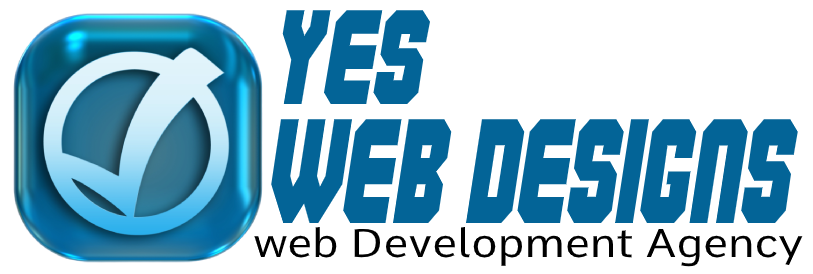Sometimes a design trend can start from an unlikely source. Blockchain, a technology designed for secure information transfer, has impacted the online community.
From Bitcoin to NFTs to everyday design projects, you can see some of the impact in projects that have nothing to do with blockchain itself. Here’s a look at how blockchain is impacting design and what it means for you.
While not a design or branding technique, this digital business tool is already changing the landscape of design. Let’s dive in and find out how.
What is Blockchain?
Blockchain is a decentralized digital ledger technology used to record and verify transactions securely, transparently, and in an immutable manner. In a blockchain network, transactions are recorded in a chain of blocks cryptographically linked. Each block contains a set of transactions, a timestamp, and a unique digital signature, called a hash, that identifies the block and its contents.
While not a design or branding technique, this digital business tool is already changing the landscape of design. Think about all the websites that have sprouted up for NFTs – a blockchain technology – and the impact of that industry on website design.
Blockchain is designed to be transparent and secure, as every participant in the network can see and verify every transaction that has ever occurred on the network.
The blockchain network is maintained by a network of nodes, each of which has a copy of the blockchain. BY design it is supposed to be impossible for a single party to manipulate the network or alter the records stored on it.
Blockchain technology has gained widespread attention due to its potential to revolutionize industries ranging from finance to healthcare to supply chain management. The most well-known implementation of blockchain technology is Bitcoin, the first decentralized digital currency.
Blockchain in Branding and Design
Blockchain is impacting design from functional and visual standpoints. Both can impact a brand that’s integrated with the technology as well as the design landscape as adoption becomes more widespread.
Functional aspects of blockchain on design and branding include:
- Authenticity: Blockchain technology can be used to verify the authenticity of digital assets, including designs, logos, and other brand assets. This can help to prevent counterfeiting and protect the intellectual property rights of designers and brands.
- Transparency: Blockchain can enable greater transparency in the design and branding process by creating a secure and immutable record of transactions. This can help to build trust between designers, brands, and consumers.
- Ownership: Blockchain can provide a more secure and transparent way to establish ownership and control of digital assets. This can help protect the rights of designers and brands and ensure they are properly compensated for their work.
- Monetization: Blockchain technology can enable new models for monetizing digital assets, such as designs, logos, and other brand assets. For example, designers could use blockchain-based platforms to license their work directly to clients.
- Collaboration: Blockchain can facilitate collaboration by providing a secure and transparent platform for sharing and exchanging ideas and assets.
Visual aspects of blockchain on design and branding include:
- Blockchain-inspired color schemes: Many blockchain-based websites use colors associated with the technology, such as blue, green, and white, to give their design a modern, high-tech feel.
- Blockchain graphics: Websites may use graphics and animations that depict blockchain technology and its various components, such as blocks, chains, nodes, and transactions. These graphics can help communicate the complexity of the technology in a simplified and visually appealing way.
- Cryptocurrency logos and icons: If the website deals with cryptocurrency, it may feature logos and icons of popular cryptocurrencies such as Bitcoin, Ethereum, or Litecoin. These logos can help users easily identify the type of cryptocurrency that is being used or accepted on the website.
- Data visualizations: Blockchain is all about data, and websites may use visualizations such as charts and graphs to display blockchain-related data, such as transaction volume, network activity, and mining difficulty.
- Blockchain typography: Some websites may use typography inspired by blockchain technology, such as a typeface that resembles the blocky characters used in blockchain transactions.
What Does this Design Trend Look Like?
This is one of those design trends that’s a little more difficult to put your finger on. While there are common logos, graphics, and even typography styles that have a blockchain feel, sometimes you have to see it to know it.
One of the primary design elements that are common with this design style is a perception of a futuristic look and feel. That includes everything from imagery to graphic overlays to even animations. Interestingly enough, the future look of this design isn’t all that forward-thinking and can be blocky, glitchy, and have an even retro, 80s futuristic feel.
Here are a few examples of websites that are using this design trend.
SupeHi Plus
Aengel Portfolio
Kaonavi Town Project
Genki
Cryptopolis Game
Blockchain Design Elements
If you want to jump into this design trend, Envato Elements actually has more than 17,000 assets labeled as pertaining to blockchain that you can download and use in projects.
Here are five examples of design elements that are perfect for this trend for you to consider.
Dynamic 3D Blockchain Animation
Blockchain Illustrated Graphics
Ethereum Cryptocurrency Coin
Cyberpunk Style Technology Futuristic Digital Font
Artificial Intelligence 3 Photoshop Action
Conclusion
Blockchain technology has the potential to significantly impact the fields of design and branding by offering new ways to authenticate, protect, and monetize digital assets.
As a design aside, there are some design considerations that are already happening due to this technology, from showing Bitcoin logos as a payment type to the blocky style of an NFT. All in all, the impact of new tech on design is the visual representation of that technology in a way that users can identify with.











